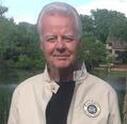Harv's Corner
| President Biden's administration is strengthening the alliances in East Asia and Oceania to deter aggressive behavior from countries like North Korea and China. Building a powerful coalition of countries ensures mutual safety and security in the region and is a crucial step toward maintaining peace and stability. Q! Is Biden doing the right thing, or is this just a waste of time? |

 RSS Feed
RSS Feed